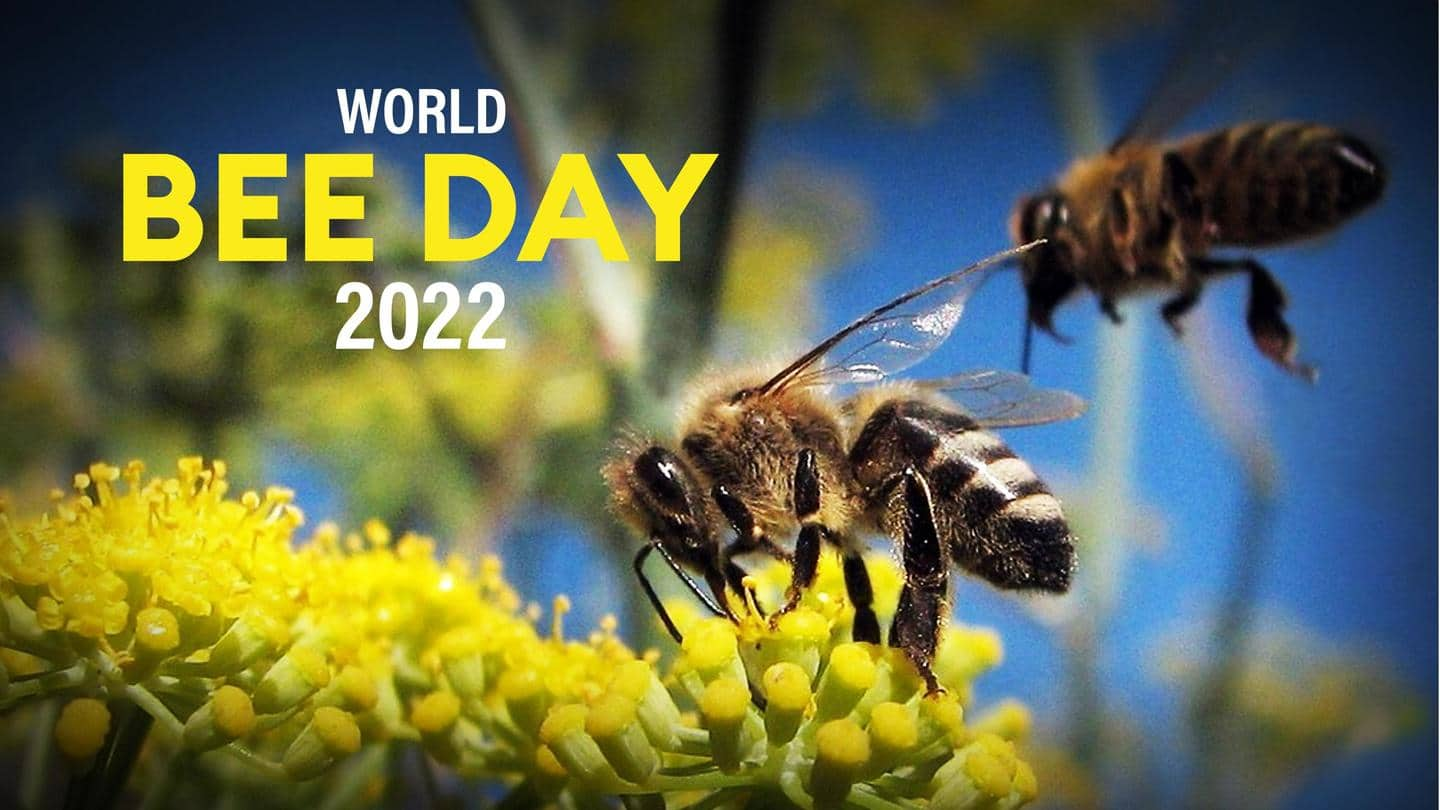
World Bee Day 2022: History, significance and more
What's the story
Observed on May 20 every year, World Bee Day is celebrated to make people aware of the importance of bees and other pollinators and how they are significant to our ecosystem and to human life. The day also aims to protect and conserve bees and save them from going extinct. It also marks the birth anniversary of Anton Jansa, the pioneer of beekeeping.
History
History of the day
Beekeeping is quite popular in Slovenia and the official motto of the country is "Land of the Good Beekeepers." Slovenia proposed that the UN proclaim May 20 as World Bee Day and it was approved in 2017. May was chosen as during this time there is a need for pollination in the northern hemisphere and harvesting honey and bee products in the southern hemisphere.
Significance
How do bees help the ecosystem
Bees help to pollinate the crops we eat and also the ones consumed by farm animals. However, intensive farming practices, harmful pesticides, and loss of natural habitat are leading to a decline in the number of bees. Bees keep our ecosystem healthy by offering pollination services to plants, regulating climate, purifying air and water and building soil, and recycling nutrients.
Celebration
How to celebrate the day?
Start your day by having a wholesome breakfast with a bowl of cornflakes or some sweet pancakes drizzled with lots of fresh honey and other hive products. You can also donate money to some charity that works toward bee conservation. Plant nectar-bearing flowers like sunflower, thyme, dill, poppy, and fennel in your garden to attract the buzzing buddies and protect them.
Facts
Some interesting facts about bees
Bees usually suck the sweet nectar from flowers and get back to their hive. They reduce the moisture content of the nectar by passing mouth-to-mouth from bee to bee until it changes into honey. Queen bees live for one-five years, drone bees for three-55 days, and worker bees for two-20 weeks. You can avoid bee stings by staying calm and not provoking the bees.